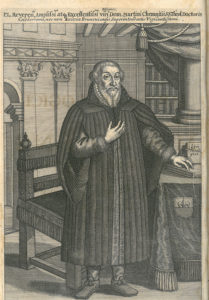by Dcs. Betsy Karkan
 “Why mercy?” It is a question which every person has asked in one form or another since the beginning of time. “Who is this God and why is He merciful to a sinner like me?” “Who is this child of God and why have they done this merciful thing for me?” Mercy simply does not make sense to a world that believes gifts are contingent upon the goodness and purity of the receiver. According to this world you have to deserve it, earn it, or be worth it, and when standing before the Most Holy God who knows all things, you simply can’t cut it. This is precisely where mercy emerges from the wounded hands and feet of Christ and enters into a broken and miserable world, wiping away the sin that causes it all. In His crucifixion, death, and resurrection, Christ shows the world that His gifts and why He gives them have everything to do with who He is and His love for all people.
“Why mercy?” It is a question which every person has asked in one form or another since the beginning of time. “Who is this God and why is He merciful to a sinner like me?” “Who is this child of God and why have they done this merciful thing for me?” Mercy simply does not make sense to a world that believes gifts are contingent upon the goodness and purity of the receiver. According to this world you have to deserve it, earn it, or be worth it, and when standing before the Most Holy God who knows all things, you simply can’t cut it. This is precisely where mercy emerges from the wounded hands and feet of Christ and enters into a broken and miserable world, wiping away the sin that causes it all. In His crucifixion, death, and resurrection, Christ shows the world that His gifts and why He gives them have everything to do with who He is and His love for all people.
Wilhelm Loehe (1808-1872) described mercy as love that enters into misery and brings consolation, relief, and help (Löhe, 2006). Mercy can be seen in many forms, including how Christ, who is love, acts in forgiveness toward the sinner. But it is also seen when the forgiven sinner shows mercy toward his suffering neighbor and even toward his worst enemy. Our Lord teaches us about mercy by pointing us to Himself: “Be merciful, even as your Father is merciful” (Luke 6:36). At times in history, however, the church has seemingly neglected or even abandoned this discipline. Reformers like Martin Chemnitz sought to recover works of mercy or charity within the corporate life of the church. In his writing On Almsgiving he exhorts his readers to be merciful and generous to the poor and  those who are suffering. In his teaching he clearly denounces the practice of the Roman Catholics who believed works of mercy could merit forgiveness of sins. He also rejects the Anabaptists who viewed wealth as an evil thing that should be forsaken. He instead points his readers to the Holy Scriptures and a biblical view of mercy toward the poor and oppressed. He writes, “[God] also wants our faith to be seen and charity (love) exercised through the sharing of goods.” Chemnitz’s focus is on how showing mercy in temporal things such as feeding the hungry, clothing the naked, and caring for widows and orphans reveals faith and shows Christ’s love to those in need. This charity, or mercy, should be given to anyone in misery regardless of whether the cause is their own sin or poverty beyond their control. In his sermon the Lord’s Supper, Luther describes the Church as being a part of “one cake” where all Christians are united together with Christ in His body and blood. Therefore, Christians serve one another in every spiritual or physical need. According to Luther, “we Christians do the same thing among one another, one becomes interested in the other, so that one bears the other’s sins and infirmities and serves him with his piety.”
those who are suffering. In his teaching he clearly denounces the practice of the Roman Catholics who believed works of mercy could merit forgiveness of sins. He also rejects the Anabaptists who viewed wealth as an evil thing that should be forsaken. He instead points his readers to the Holy Scriptures and a biblical view of mercy toward the poor and oppressed. He writes, “[God] also wants our faith to be seen and charity (love) exercised through the sharing of goods.” Chemnitz’s focus is on how showing mercy in temporal things such as feeding the hungry, clothing the naked, and caring for widows and orphans reveals faith and shows Christ’s love to those in need. This charity, or mercy, should be given to anyone in misery regardless of whether the cause is their own sin or poverty beyond their control. In his sermon the Lord’s Supper, Luther describes the Church as being a part of “one cake” where all Christians are united together with Christ in His body and blood. Therefore, Christians serve one another in every spiritual or physical need. According to Luther, “we Christians do the same thing among one another, one becomes interested in the other, so that one bears the other’s sins and infirmities and serves him with his piety.”
Through the Scriptures and the writings of the Church Fathers we discover that mercy cannot be separated from the life of the church. Pastor Matthew Harrison explained it well when he said, “Wherever the church breathes in the blessed Gospel and sacraments, it cannot but exhale mercy and love toward the neighbor (diakonia). Diakonia is as much as part of the church’s life as good works are a part of the life of faith. This applies to Christians both individually and collectively.” This simple summary can easily answer the question “Why mercy?”
 In the end, truly free mercy is what distinguishes the Christian Church from every other religion, every cause, and every type of humanitarian aid effort. The mercy of Christ given freely to all, free from a false faith that trusts the works themselves to earn anything, and draws the attention of a world that is suffering and in need both spiritually and physically. It is in fact the balm for all suffering, sin, and misery in this world. Thanks be to God that He richly and freely gives this life-saving gift to His church!
In the end, truly free mercy is what distinguishes the Christian Church from every other religion, every cause, and every type of humanitarian aid effort. The mercy of Christ given freely to all, free from a false faith that trusts the works themselves to earn anything, and draws the attention of a world that is suffering and in need both spiritually and physically. It is in fact the balm for all suffering, sin, and misery in this world. Thanks be to God that He richly and freely gives this life-saving gift to His church!
Deaconess Betsy Karkan serves at Concordia University-Chicago.
Works Cited
Chemnitz, M. (n.d.). On Almsgiving. (J. Kellerman, Trans.) LCMS World Relief and Human Care. Retrieved from http://www.lcms.org/Document.fdoc?src=lcm&id=719
Harrison, M. C. (2002). The Church’s Role of Mercy in the Community. In R. E. Johnson (Ed.), Mercy In Action: Essays on Mercy, Human Care and Disaster Response (pp. 167-179). St. Louis: The Lutheran Church Missouri Synod.
Löhe, W. (2006). Löhe on Mercy. (A. Dorr, P. Hendrickson, Eds., & H. Sonntag, Trans.) St. Louis, MO, USA: LCMS World Relief and Human Care. Retrieved from http://www.lcms.org/Document.fdoc?src=lcm&id=722
Luther, & Luther, M. (2015). All Become One Cake. In R. E. Johnson (Ed.), Mercy In Action: Essays on Mercy, Human Care and Disaster Response (pp. 219-227). St. Louis: The Lutheran Church Missouri Synod.
